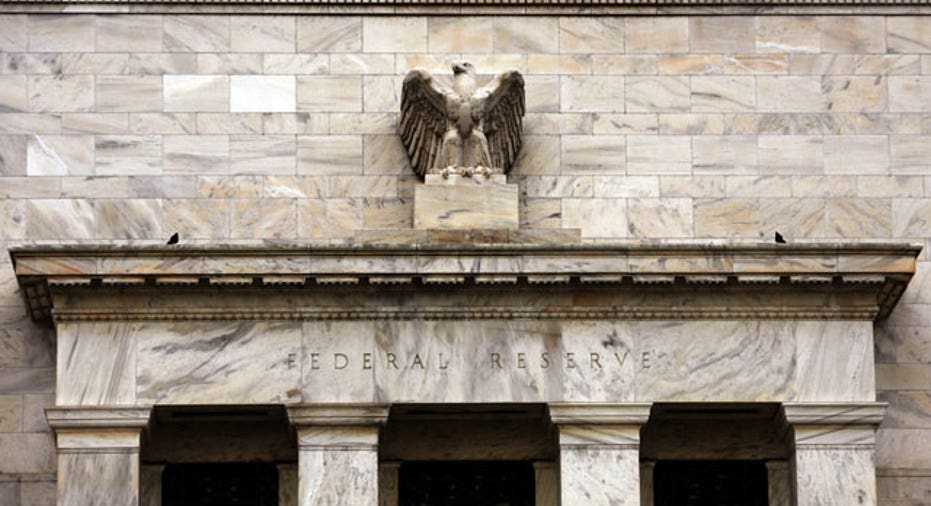Fed Officials: Economic Conditions May Warrant More Easing

Federal Reserve officials on Tuesday signaled more help for the U.S. economy may be necessary despite recent data that suggested the recovery was picking up steam going into 2012.
San Francisco Fed President John Williams and Sandra Pianalto, head of the Cleveland Fed, said they expected inflation to dip this year, which could pave the way for more policy accommodation from the already stretched central bank.
The pair, each with a vote this year on the Fed's policy-setting committee, did not specifically advocate policy change but they suggested conditions could yet warrant more action.
Meanwhile, Kansas City Fed President Esther George cautioned that policymakers must weigh risks of sowing the seeds of future instability when considering further action to spur growth.
The Fed late in 2008 slashed interest rates to near zero and has since bought $2.3 trillion in long-term securities to spur growth and keep the economy afloat in response to a deep recession and financial crisis.
Williams said the Fed should consider buying more housing-sector bonds if more evidence builds that inflation is falling as he expects toward 1.5 percent, well below what the Fed sees as a healthy level of inflation.
If that prediction pans out and U.S. economic growth stays in the 2.5-to-3-percent range, there is a "strong argument for going to, I think, purchasing more mortgage-backed securities down the road," he told reporters after a speech in Vancouver, Washington.
Some of the Fed's large-scale asset purchases were of mortgage-related securities.
Recent data from employment to manufacturing to consumer credit suggest the world's largest economy gained momentum going into 2012. The high unemployment rate, a slow housing market recovery and the European debt crisis still, however, pose risks.
Pianalto called the economic recovery "frustratingly slow" and unemployment, at 8.5 percent in the latest reading, "stubbornly high."
"While it is true that the federal funds rate has been near zero for some time, some economic policy models indicate that monetary policy should be even more accommodative than it is today," she said in a speech in Wooster, Ohio.
Pianalto, like Williams, is considered on the dovish wing of the Fed, more concerned with bringing down high unemployment than fending off high inflation.
Though in the past she forecast 2-percent inflation for the next two years, in her first speech of the year Pianalto said she expects inflation to dip below that level during the first half of 2012.
Pianalto and Williams painted a picture of continued economic weakness, each saying they expect the economy to grow around 2.5 percent this year, and about 3 percent in 2013. While Pianalto characterized it as a "moderate" recovery, Williams said that pace is too slow to take a big bite out of unemployment.
Williams predicted the jobless rate will stay above 8 percent well into next year, ending 2014 at around 7 percent, calling the situation a "national calamity." (Reporting by Ann Saphir in Vancouver, Washington, Kim Palmer in Wooster, Ohio and Mark Felsenthal in Kansas City; Writing by Jonathan Spicer; Editing by Padraic Cassidy and James Dalgleish)



















